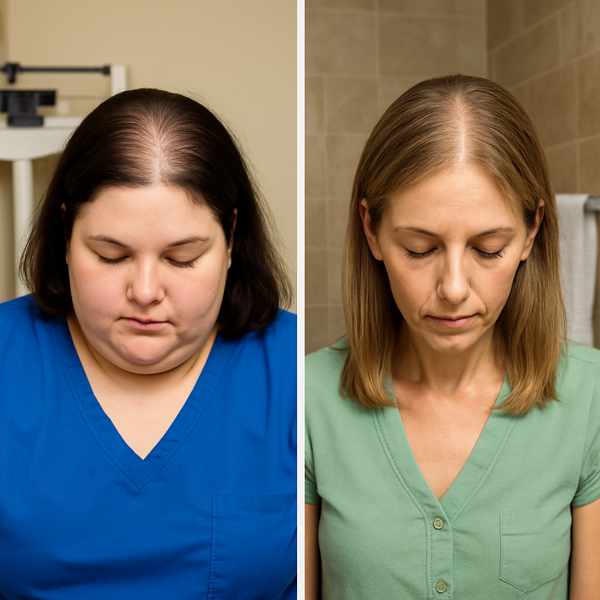
Losing weight is often a positive step toward better health, but it can sometimes come with unexpected side effects — like hair loss.
Understanding why this happens and how to protect your hair can help you reach your goals without compromising your confidence.
Why Hair Loss Happens During Weight Loss
Hair loss during weight loss is usually a result of physical stress or nutritional deficiencies.
Common causes include:
- Lack of protein, iron, or vitamins
- Extreme calorie restriction
- Hormonal imbalances
- The body reacts to sudden changes
What Type of Hair Loss Is It?
It’s a temporary condition where hair enters the shedding phase prematurely.
Key facts:
- Usually occurs 2–3 months after weight loss begins
- No bald patches, just thinning
- Hair usually grows back with time
Nutrients Critical for Hair Health
If you're trying to lose weight, be sure not to miss these nutrients:
- Protein
- Carries oxygen to hair follicles
- Biotin and other B vitamins
- visit Zinc
- Vitamin D
Skipping meals or using crash diets can easily lead to deficiencies that trigger hair loss.
Yes — With the Right Strategy
You don’t have to choose between losing weight and keeping your hair.
Tips include:
- Lose weight gradually
- Eat a nutrient-rich diet
- Consider a multivitamin
- Both affect hormones and hair health
- Stay hydrated
How to Manage Hair Loss During Your Journey
If you notice excessive shedding:
- It’s likely temporary
- Check for deficiencies or thyroid issues
- Replenish what’s missing
- Avoid tight hairstyles and harsh products
- Be patient
Should You Talk to a Doctor?
A doctor or dermatologist can help identify underlying issues like:
- Thyroid dysfunction
- Autoimmune conditions
- Need professional correction
The Truth About Weight Loss and Hair Loss
By understanding what’s happening inside your body, you can take steps to protect your health — and your hair.
Prioritize nourishment, patience, and consistency, and your body will thank you — from head to toe.